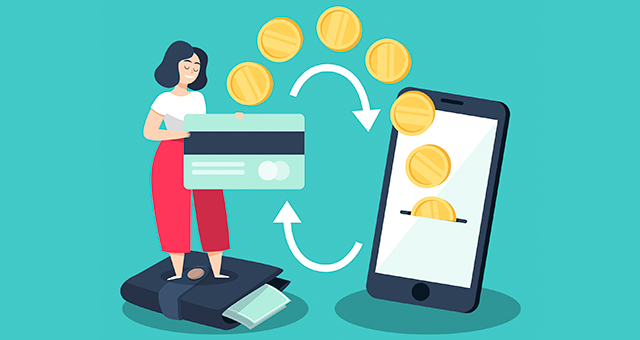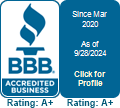
Should You Request a Credit Card Limit Increase? The Key Do’s and Don’ts
An increase in credit card limits can be tempting. After all, who does not want more spending power? If you wish to make a large purchase, improve your credit score, or reduce your credit utilization rate, increasing your credit limit may seem like the solution. But before you rush into a request, it is crucial to understand both the benefits and risks involved.
Understanding the do’s and don’ts of a credit card limit increase will help you make an informed decision that aligns with your financial goals and keeps your debt in check.
What is a Credit Limit?
Your credit limit is the highest amount your lender permits you to borrow on a credit card. Managing this limit is crucial for maintaining financial health. Your credit limit is set based on various factors, including income, creditworthiness, and payment history. Having a higher credit limit means you have more room to make purchases, but it also requires more discipline in managing your spending.
Why Credit Limit Matters
Your credit limit affects several aspects of your financial health:
Credit Utilization Ratio
A crucial component of your credit score is your credit utilization ratio. It shows the percentage of your credit limit that you are currently utilizing. For instance, if your credit limit is $5,000 and you have used $1,500, your credit utilization rate would be 30%.Keeping this ratio below 30% can help improve your credit score, while higher usage can hurt it.
Credit Score
A higher limit, when used responsibly, can lower your credit utilization ratio, leading to a potential increase in your credit score. This is because lenders see a lower ratio as an indicator of responsible credit management.
Financial Flexibility
A higher credit limit means you can make larger purchases without worrying about maxing out your credit card. It can be especially helpful in emergencies or when making significant purchases, such as travel or home repairs.
Debt Risks
Conversely, a higher limit can also present a temptation to overspend, which may lead to high-interest debt. If you are not careful, what initially seems like a helpful increase can become an overwhelming financial burden.
Understanding why your credit limit matters gives you a clear picture of how to use it for your benefit.
Do’s of Increasing Credit Limit
1. Evaluate Your Financial Situation
Examine your existing financial status prior to asking for a limit increase. Examine your monthly income, expenses, and any outstanding debt in detail. For instance, if your income has increased or your financial situation is stable, it might be a good time to request an increase. However,it may not be the right time if you are living paycheck to paycheck or struggling with debt.
2. Build a Strong Credit History
A credit limit increase is more likely to be approved by lenders if you have a history of appropriate credit behavior. It includes making timely bill payments, maintaining low balances, and avoiding late fees. For example, if you have had your current credit card for a year and have consistently paid off your balance, this shows the issuer that you are trustworthy.
3. Request an Increase Strategically
The timing of your request for a credit limit increase can make all the difference. Before asking for an increase, it is advisable to wait at least six months to a year after opening a new credit card. During this time, focus on building a positive credit history. If you have recently paid off large balances or have increased your income, it is a good time to request a higher limit.
4. Use Your Increased Limit to Lower Utilization
One of the main benefits of a credit limit increase is the opportunity to lower your credit utilization ratio. For example, if you currently have a $3,000 balance on a $5,000 card (60% utilization), increasing your limit to $10,000 and keeping the same balance brings your utilization to 30%. It can boost your credit score.
5. Review Your Credit Report
Before requesting an increase, check your credit report for errors or issues affecting your approval. Common mistakes include inaccurate late payments or incorrect personal information. Dispute any errors before proceeding.
6. Communicate with Your Issuer
Be honest about your reasons for wanting a higher limit. Many issuers appreciate transparency and may approve your request.
Don’ts of Increasing Credit Limit
1. Request Frequently
Repetitively asking for a credit limit increase will lower your credit score. Each request usually results in a hard inquiry, which can cause a temporary drop in your score. A cluster of inquiries within a short time frame may indicate financial challenges to lenders
2. Overspend After the Increase
Just because you have a higher credit limit does not mean you should spend more. Using the additional credit without paying it off in full can quickly lead to high-interest debt. Stay within your budget and only use your credit card for expenses that you can pay off each month.
3. Ask for an Increase if You Are Struggling with Debt
If you already have trouble managing your credit card debt, requesting a limit increase could lead to even more financial stress. Instead of increasing your limit, focus on paying down your existing debt and building healthy financial habits before considering a limit increase.
4. Ignore the Fine Print
When requesting a credit limit increase, understand the terms and conditions. Some issuers may raise your limit but also increase fees or interest rates. Others could perform a hard inquiry. Examine the fine print closely to steer clear of unwelcome surprises.
5. Assume Approval
Being a responsible cardholder does not guarantee approval. Lenders will assess factors like credit history, income, debt-to-income ratio, and spending habits. So, if you have a history of late payments or high debt, you may not be approved for a credit limit increase.
6. Carry a Balance
It can be expensive to keep a balance on your credit card due to the high interest rates. Avoid carrying a balance, even with a higher credit limit. Pay off your credit card debt in full every month.
Final Thoughts
Increasing your credit limit can be a valuable tool to improve your credit score and provide financial flexibility, but it requires careful planning and discipline. By adhering to these do’s and don’ts, you can make the most of a higher credit limit while avoiding potential debt traps. Remember, responsible credit management is the key to long-term financial health.


